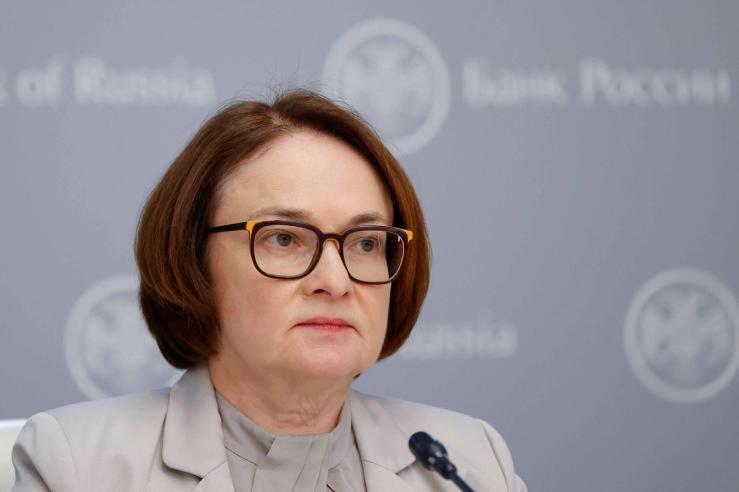The News
Russia’s central bank tightened its monetary policy Friday, bumping the main interest rate up to 19% as Moscow’s war in Ukraine continues to put inflationary pressure on the economy.
The bank warned that it could hike the rate further at its next meeting in October in an attempt to force inflation down from 9.1% to its 4% target in 2025.
While Russia’s economy has continued to grow this year, an increasingly large part has been geared toward supporting the war effort. The rise in defense spending has fueled the country’s stubbornly high inflation rate, which the bank said has not yet shown signs of easing.
SIGNALS
Russia’s war spending drives inflation
Russia’s government spending is up almost 50% since 2021, as the Kremlin pumps money into its military and defense sectors to sustain the war in Ukraine. But President Vladimir Putin faces a challenge to “fund his ongoing war against Ukraine, maintain his populace’s living standards, and safeguard macroeconomic stability” all at the same time, a former Russian central bank employee wrote in Foreign Affairs. Expenses to keep the war going are likely to keep inflation high, and exacerbate economic problems for the country, the former official added. While few analysts believe the current levels of defense spending are sustainable, Moscow’s considerable reserves means it will likely be able to continue financing the war at current levels for two to three years, according to an analyst at the Carnegie Russia Eurasia Center.
Invasion of Ukraine has worsened labor shortfall
Russia’s unemployment is at historic lows, as its heightened military spending has made the defense industry desperate for more workers. According to Russian media there is a labor shortage of almost 5 million workers, with the defense industry alone short of an estimated 400,000 employees. The lack of workers has been exacerbated by several factors including the drop in labor migrants from central Asia, the tens of thousands of workers joining the army every month, and a war-induced exodus from Russia, The Bell, an independent Russian economics outlet, reported. Companies are resorting to drastically raising salaries to lure workers, which also fuels inflation.
Russia increases taxes to keep funding the military
Russia is planning to implement its first major tax overhaul in 20 years next year, which Moscow expects will add an estimated $30 billion to its revenues. The move will “enable Russia’s leadership to balance the budget without cutting military spending,” an analyst wrote for Carnegie Politika. The tax increase primarily targets Russia’s wealthiest citizens, allowing Putin to spin it as a “social justice” measure rather than an effort to fund the war. But the tax hike might not generate the revenues the Kremlin is hoping for, a former French intelligence officer wrote in War on the Rocks. Because the income of major companies such as Gazprom has plummeted, companies may end up paying fewer taxes than before even at the higher rate.



